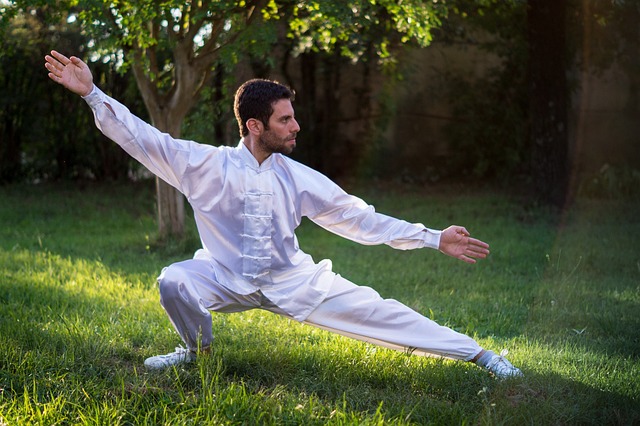 S asks: "Is Chi kung a New Age exercise regimen?"
S asks: "Is Chi kung a New Age exercise regimen?"Chi Kung, more widely known as qi gong, is a form of Traditional Chinese Medicine (TCM) that has been made popular – along with other energy-based healing modalities – by the New Age.
Qigong comes from the Chinese words "Qi" meaning "Energy" and "Gong", which means "work" or "practice." It is a Chinese exercise system the focuses on cultivating and attracting "qi" or "lifeforce" energies from the universe. Belief in a universal life force is based in pantheism and is not compatible with Christianity, nor the existence of this energy substantiated by science.
Practitioners believe qigong can be used to regulate the body’s “qi” through posture, and in the mind through meditation and breathing techniques.
As traditional Chinese practitioners explain, qigong involves a wide range of exercises and styles, such as "tuna" which emphasizes the practice of breath; "still" qigong, which stresses meditation and relaxation; "standing stance" qigong, which emphasizes the exercise of the body by relaxed and motionless standing posture; "moving" and "dao-yin" qigong, which emphasizes external movement combined with internal quiet and control of the mind. “Soft qigong” refers to exercises which enhance spiritual, mental and physical health with meditation and gentle exercises while “hard qigong” refers to exercises done in martial arts that are designed to strengthen the body and protect it from injury.
Meditation is an important component of qigong but this is eastern meditation which is more aptly described as a concentration exercise rather than what Christians know as traditional meditation (such as reflecting on a Gospel passage). The kind of meditation practiced in qigong involves quieting the mind in order to enter into an altered state of consciousness.
The Pontifical document, Jesus Christ the Bearer of the Water of Life, warns that these states “create an atmosphere of psychic weakness (and vulnerability)” (Sec. 4).
In their 1994 book, A Catholic Response to the New Age Phenomena, the Irish Theological Commission elaborates further by saying that in these altered states “people are open to spirit influences without being in control, for they have surrendered to this 'consciousness'.”
And yet this kind of “meditation” is vitally important to the practice of qigong, according to practitioners. “Much of the success of qigong practice depends on the level of peace and quietness one can attain,” one website explains. “This ‘entering a quiet state’ refers to a settled and peaceful state of mind not disturbed by extraneous thoughts, the mind concentrated on one point such as the "Dantian" (about one inch below the navel) or on the very act of breathing. All awareness to external stimuli (such as sound and light) is thereby reduced, even to the point that the practitioner's sense of position and weight are lost, until one reaches a state in which they are conscious yet not conscious, aware yet not aware. In this way, the cerebral cortex enters a quiescent state. . . .”
Last, it’s important to understand that the practice of qigong belongs to TCM which has its own unique view of the world – a view that is not compatible with Christianity.
For example, TCM is based on the ancient Chinese perception of humans as microcosms of the surrounding universe with everyone and everything in nature interconnected and subject to its forces.
Central to TCM is the yin-yang theory – which is the concept of two opposing forces that shape the world and all of life. It also believes in a life force called qi which allegedly circulates in the body through a system of pathways called meridians. According to TCM, health is obtained by maintaining balance and harmony in the circulation of qi.
None of these are Christian beliefs and participation in these practices expose a person to a variety of problems from the temptation to adopt non-Christian beliefs to placing our faith in false gods such as universal energy forces.
© All Rights Reserved, Living His Life Abundantly®/Women of Grace® http://www.womenofgrace.com
